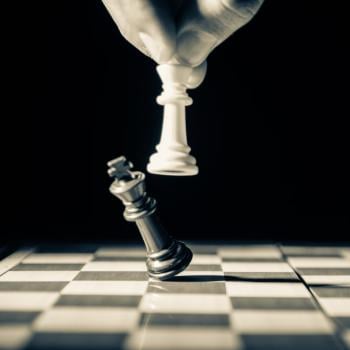This was the milieu I grew up in. LONG spiritual discussions in our living room until the wee hours of the morning. Sufis, Buddhists, Jehovah’s Witnesses, Sikhs, agnostics and all manner of aspiring seekers digging into life’s biggest questions and delving, questing, searching for truth and cosmic insight. Bookshelves filled with religious tomes. Bottomless pots of coffee and tea. Art covering the walls. Music everywhere. More second-hand smoke.
During these years America was at war with an enemy most Americans didn’t even really know anything about, an enemy that had never threatened anyone they knew in any way, shape or form: The North Vietnamese. Televisions were starting to show the body bags of dead young Americans being shipped home. Rumors of grotesque violence towards humble villagers were making their way stateside; chemicals that melted trees, illegal bombing campaigns, genocidal massacres. People were starting to freak out. Why all this war? What bill of goods are we being sold by our military industrial complex? Perhaps, as the Beatles said all along, all we really do need is Love?
In the south and in the cities another war was being fought. African American men and women being beaten and hosed down like animals. Dogs lunging. Peaceful marchers tear-gassed by the National Guard and ruddy, angry-faced white people shouting the “N” word. All because people of color wanted to be able to sit on a bus or at a lunch counter or get an education. Or be treated with respect. What’s with all the hate? Had this been under our noses the whole time?
The time was right and ripe for revolution. If the conservative churches and clergy of our parents don’t hold any solutions, perhaps other modes of spirituality had an answer to all this madness and confusion. People started looking for meaning both outside themselves and in. Way in.
For the people who became seekers and then members of the Baha’i Faith during this tumultuous time there were several teachings of this young religion that magnetized and energized their hearts and minds.
The truly revolutionary writings of Baha’u’llah addressed the largest social problems of the day, bristling with relevancy. When I say the word “revolutionary,” I don’t throw that word around lightly. I mean, imagine it: the idea that a nineteenth century Persian nobleman could address difficult societal issues that even now, in 2017, are still at the cutting edge is truly astonishing.
For instance, the rights of women and girls. Perhaps you’re aware of the current state of the status and rights of women in much of the Muslim world. Females aren’t allowed to drive, to travel without a male relative as a chaperone, even to go out in public alone. Marriages are arranged and the state of women is often similar to that of a household slave. Women can be beaten pretty much whenever the husband wants, and stoned or killed if there’s the possibility of the slightest impropriety to the family. Can you imagine how infinitely worse it must have been in the mid-1800s? Then, women were treated like animals. Men had multiple wives and the women had no rights, no say in their lives whatsoever. They were traded like mules.
In the midst of this environment, Baha’u’llah taught that women are equal to men in every way, have the same rights and should be empowered through education. Even more he claimed that humanity would never achieve its potential and maturity unless women are honored and accorded the same rights as men.
Although Iran is bit more progressive when it comes to women than some other Muslim countries, people who fight for the emancipation of women there in 2017 are basically silenced and imprisoned. Imagine the response in the 1860s.
As a matter of fact, the first woman to remove her veil as a protest against Muslim cultural beliefs about women was an early follower and friend of Baha’u’llah, a renowned poetess named Tahirih—an acclaimed theologian who turned down a marriage proposal from the Shah himself. A renowned writer whose poetry is still beloved in Iran, she was barred from ever seeing her children and kept under house arrest by her husband and uncle. She was reviled by the Muslim and government authorities, banished to various places around Persia and had rocks thrown at her wherever she went.
Before she was strangled with her own scarf and her body thrown in a well with stones heaped upon it, she famously proclaimed to the world the clarion call of “You can kill me as soon as you like, but you can not stop the emancipation of women!” All this was happening at the exact same time as the first-ever women’s suffrage conference in Seneca Falls, New York. In fact, Tahirih may have been the world’s first modern feminist martyr.
Baha’u’llah taught the elimination of racial prejudice and the importance of social justice during a time when the brown and black races were considered literally less than human, and slavery was being practiced in every corner of the world. In fact, as a Persian nobleman, it is said that the first thing he did when he inherited his father’s estate was to free all the slaves. This was unheard of at the time. Revolutionary. The concept that we were all members of one global human family, regardless of our race or class was preposterous back then. The idea that all human beings had rights under God, and that they were equal in his sight no matter what their race or class was revolting, shocking and outrageous. For millions around the globe, it’s still threatening today. Even (especially!) here in the United States.




